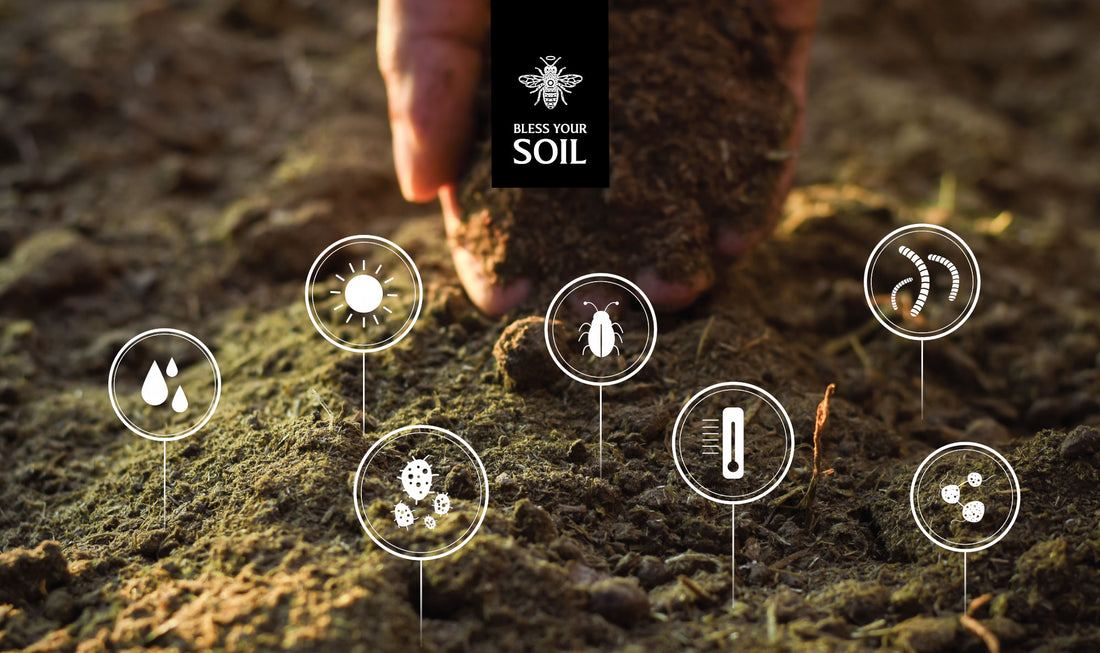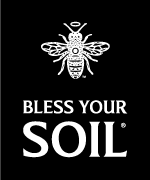
Plant probiotic bacteria, or feeding soil microbes, is a relatively new concept in gardening. Like all living things, your plants—even your houseplants—rely on a balanced microbiome to flourish and mature. Some experts may agree that soil microbes are as important as plant nutrition and fertilizers.
What are Plant Probiotics?
Simply put, plant probiotics are microscopic organisms, microbes, that live in harmony in and around the plant and the plant soil. They exist as beneficial bacteria, fungi, protozoa, or microscopic worms. They do not harm the plant or the soil. Each type of organism lives in a specific area of the plant and soil environment and performs certain activities that benefit the plant overall.
Our focus for this article is plant probiotics that exist as soil bacteria or “soil microbes”.

What Do Plant Probiotics Do?
Plant probiotics, as soil microbes, are important for plant health as they do some pretty amazing things for plant growth. In fact, probiotic bacteria are necessary for proper plant growth. Without getting too “sciency” about it, a strong population of soil microbes may help control pathogens, resist stress, and improve nutrient uptake, among many other, very awesome things. (Menendez et al., 2017)
For houseplants, a healthy colony will help promote bigger leaves, stronger root systems, and help resistance to disease (This is great news for sensitive plants, like your fiddle-leaf fig tree plant).
Related: Why is my fiddle-leaf fig tree dying?
For gardens and flowers, this means greater yields and higher quality blooms and produce.
Paying attention to the health of the plant and soil microbiome can contribute to more sustainable gardening and even reduce the need for pesticides.
Do I Need to Buy Plant Probiotics?
No. While these types of soil conditioners and biofertilizers exist, you don’t need to buy separate probiotics for your plant. In fact, there are a number of reasons why we don’t recommend it at all, but the main reason is because soil bacteria are vast and their benefit is plant-specific.
What does that mean?
It means there are more types of bacteria than you can count, and the individual activity of each bacterium is not yet fully understood. Further, beneficial bacteria is always host-specific, and in this case, you wouldn’t know if you’re using a plant probiotic best suited for a tomato plant or a dandelion. Introducing the wrong type of bacteria can set off a colonizing war in your plant’s soil, or simply be a waste of money.
Your plant already has its own microbiome—its own colony of diverse, healthy bacteria just waiting for nutritious food to feed on. So, unless you’re a microbiologist and love to geek-out on soil bacteria, our best advice is to feed the good soil bacteria your plant already has, and let nature take care of itself.

How Do I Feed Soil Microbes
There are a number of meals that soil microbes can munch on, but they really thrive on seaweed extract (botanical kelp, Ascophyllum nodosum). A number of studies have found that regular servings of seaweed extract stimulate soil microbes and help enhance the many benefits that a healthy microbiome brings to the plant host. (Hines et al., 2021)
For this reason, botanical kelp is a key ingredient in all Bless Your Soil™ plant foods. With Bless Your Soil™ on your side your plants get access to the best microbe food nature has to offer. Whether you’re looking for an all-purpose garden fertilizer, lawn fertilizer, houseplant food, or fiddle-leaf tree (ficus) plant food, we’ve got you covered!
Simply try these pretty-much-magical plant foods for a couple months, and if the results don’t make you delighted, just request a refund.
Bless Your Soil™ plant foods are available for purchase here or at our Amazon Brand Store.
Related: What makes Bless Your Soil plant foods better?

Chen Y, Li J, Huang Z, et al. Impact of short-term application of seaweed fertilizer on bacterial diversity and community structure, soil nitrogen contents, and plant growth in maize rhizosphere soil. Folia Microbiol (Praha). 2020;65(3):591-603. doi:10.1007/s12223-019-00766-4
Menendez, E., & Garcia-Fraile, P. (2017). Plant probiotic bacteria: solutions to feed the world. AIMS microbiology, 3(3), 502–524. https://doi.org/10.3934/microbiol.2017.3.502
Shukla PS, Mantin EG, Adil M, Bajpai S, Critchley AT, Prithiviraj B. Ascophyllum nodosum-Based Biostimulants: Sustainable Applications in Agriculture for the Stimulation of Plant Growth, Stress Tolerance, and Disease Management. Front Plant Sci. 2019;10:655. Published 2019 May 29. doi:10.3389/fpls.2019.00655
Hines, S., van der Zwan, T., Shiell, K., Shotton, K., & Prithiviraj, B. (2021). Alkaline extract of the seaweed Ascophyllum nodosum stimulates arbuscular mycorrhizal fungi and their endomycorrhization of plant roots. Scientific reports, 11(1), 13491. https://doi.org/10.1038/s41598-021-93035-9


